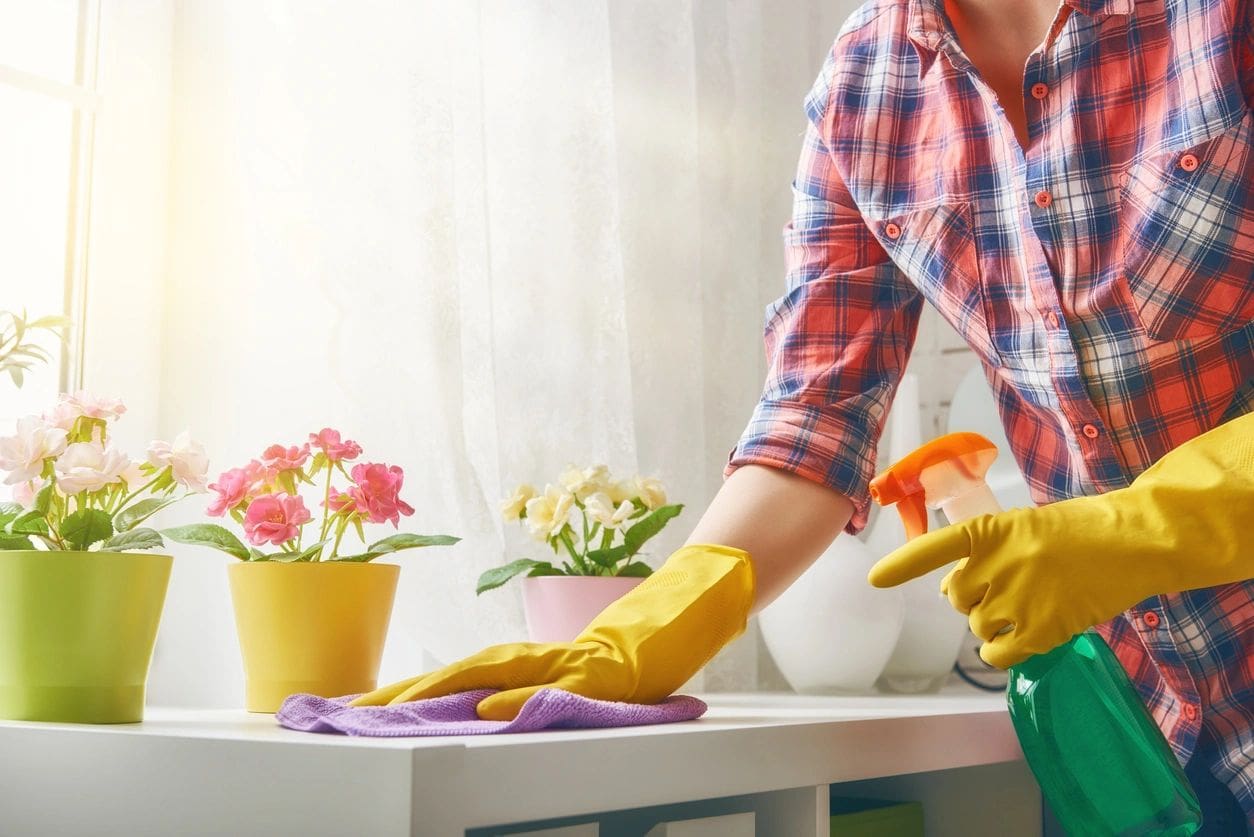Organic Cleaners: How Effective Are They?
While there are hundreds of cleaning products to select from for your home, some can do more harm than good. That's why so many consumers opt for using organic cleaners. They want that added health and safety protection, whether for their lungs by not breathing harsh fumes or for pets or children who may be crawling around on the floor frequently. But can your home get adequately clean using the natural stuff?

How Dangerous Are Chemical-Based Cleaners Really?
There are definitely recommendations out there on what's safe and what's not. According to the Environmental Working Group, you should be aware of some potentially harmful chemicals to avoid in chemical-based cleaning products. Some examples are diethanolamine, formaldehyde, sulfuric acid, 1,4-dioxane, boric acid, ammonia, and bleach. If you are using these chemicals or products that contain them, be sure to use the proper safety gear. Gloves are very important when using cleaners to avoid absorption through the skin.
According to the American Lung Association, a number of regularly used household cleaning supplies pose significant lung risk. It's important to be aware of these risks. You may or may not decide to use organic cleaners, but you can at least take precautions against breathing in harmful chemicals. Be aware and take reasonable steps for safety, like not being in your home when your oven is in its self-clean cycle, or opening windows and turning on the central fan to more quickly disperse harmful toxins.
What Are Organic Cleaners?
Organic cleaners contain non-synthetic ingredients. Although these non-synthetics may be refined, they are not altered by or added to with manufactured chemicals. Common ingredients include vinegar, hydrogen peroxide, baking soda, Castile soap, citric acid, and/or essential oils.
Essential Oils
The fragrance that gives essential oils their strength and potency often come from VOCs (Volatile Organic Compounds). There's research suggesting that VOCs may worsen your lungs, especially in frequent exposure, but several companies and studies promote differently. While in high, long-term concentrations, VOCs that are dispersed indoors can cause eye and respiratory irritation, headaches, dizziness, nausea, and allergic skin reactions, they're also known to promote health benefits when used appropriately. Knowing the correct use of essential oils in cleaning is important before actually using them.
Great, They're Healthier, but Do They Get My House Clean?
The short answer: yes. Many at home made organic cleaners are very effective, but you should be aware about what kind of ingredients they carry to determine effectiveness if you buy them. More so, don't expect them to be effective in the same way as harsher cleaning supplies. Organic cleaners can get the job done, but sometimes it requires a little extra elbow grease to do it.
The best way to implement organic cleaners into your home's cleaning regiment is to clean more frequently. If you don't allow scum and dirt buildup to become to excessive, you'll find that organic cleaners better help maintain cleanliness. When the grime gets to thick, sometimes the harsher cleaners are just the reality you need to get it back right.
Looking for a Home Cleaner?
If you're looking for a professional home cleaner, give us a call. Our team will handle all of your cleaning needs and, if requested, use completely organic cleaners for you.